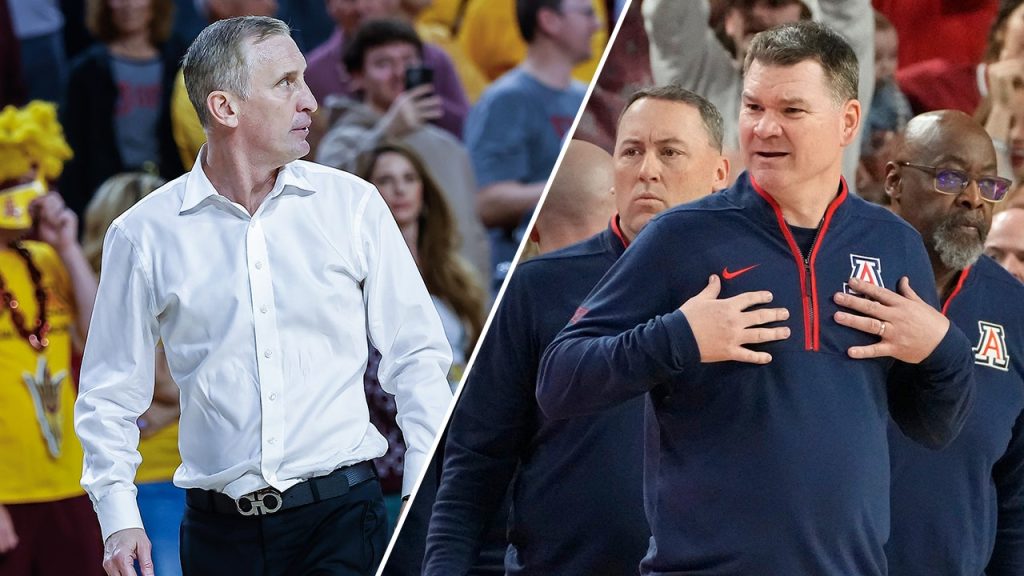The final moments of the Arizona State-Arizona basketball game on Saturday devolved into a chaotic scene, initiated by an on-court altercation and culminating in a dramatic bench-clearing incident orchestrated by ASU head coach Bobby Hurley. The flashpoint occurred with around 30 seconds remaining in the game, Arizona leading comfortably 81-72. A tangle between Arizona’s Caleb Love and ASU’s BJ Freeman escalated when Freeman headbutted Love. Both players were subsequently ejected, but the incident ignited underlying tensions between the two teams, setting the stage for Hurley’s controversial decision.
As the referees attempted to restore order, Hurley took the extraordinary step of ordering his entire bench to retreat to the locker room. This unusual move left only the five Sun Devils on the court and Hurley himself on the bench as Arizona dribbled out the clock. Just before the customary post-game handshake line, Hurley further escalated the situation by waving off Arizona coach Tommy Lloyd, effectively canceling the traditional display of sportsmanship. Both teams then proceeded directly to their respective locker rooms, leaving a palpable sense of tension hanging in the air.
In the post-game press conference, Hurley defended his actions, arguing that he had no choice but to protect his players from what he perceived as unsportsmanlike conduct by Arizona players. He accused certain Wildcats of engaging in “relentless constant chatter” near the ASU bench, which he claimed went unchecked by officials. This verbal sparring, Hurley asserted, provoked Freeman’s headbutt, prompting his decision to clear the bench and avoid further escalation during the handshake line. He explicitly linked the on-court altercation to the alleged verbal taunting, suggesting that Freeman “lost his cool” due to the “constant talk.”
Hurley did not mince words in his assessment of the situation, criticizing the Arizona players for celebrating their victory “with no class.” He further punctuated his displeasure with a thinly veiled jab at Caleb Love, stating he would not receive Hurley’s vote for All-Conference honors. This pointed remark suggests that Love played a central role in the verbal exchanges that Hurley believed instigated the incident. The coach’s comments highlight his perception of a lack of respect and sportsmanship displayed by the opposing team.
Arizona coach Tommy Lloyd, while acknowledging the uncomfortable situation, offered a more conciliatory response. He admitted the incident was “disappointing on all sides” and expressed a desire for his program to respond to difficult situations with class. While not explicitly conceding any wrongdoing on his team’s part, Lloyd acknowledged the emotional nature of the game and affirmed his respect for both Hurley and the Arizona State program. His measured response contrasted sharply with Hurley’s pointed accusations, reflecting differing perspectives on the events that transpired.
This dramatic ending to the rivalry game adds another chapter to the often-heated history between Arizona State and Arizona. The Wildcats improved their record to 15-6 overall and 9-1 in conference play, while the Sun Devils fell to 12-9 and 3-7 in conference. With a rematch scheduled for March 4th, the fallout from this incident is sure to add fuel to the fire, promising another intense encounter between these two in-state rivals. The incident raises questions about sportsmanship, the role of coaches in managing player behavior, and the intensity of rivalry games. The contrasting post-game narratives further underscore the differing interpretations of the events, leaving fans and analysts to debate the merits of each side’s perspective.


